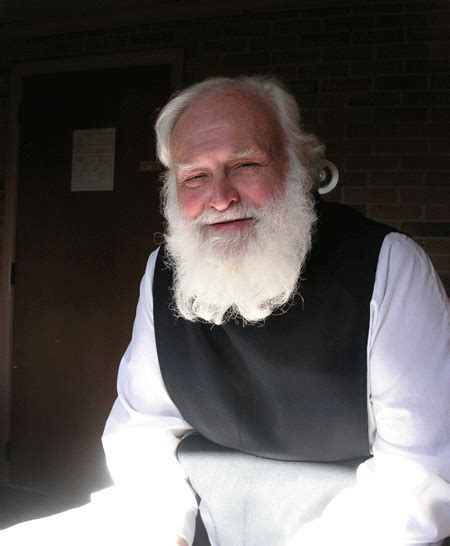A Quote by Richard Rohr
Who is telling us about the false self today? Who is even equipped tell us? Many clergy have not figured this out for themselves, since even ministry can be a career decision or an attraction to "religion" more than the result of an encounter with God or themselves. Formal religious status can maintain the false self rather effectively, especially if there are a lot of social payoffs like special respect, titles, salaries, a good self image, or nice costumes. It is no accident that the religious "Pharisees" became the symbolic bad guys in the Jesus story.
Quote Topics
About
Accident
Attraction
Bad
Bad Guy
Bad Guys
Became
Career
Clergy
Costumes
Decision
Effectively
Encounter
Equipped
Even
False
Figured
Formal
God
Good
Guys
Image
Jesus
Like
Lot
Maintain
Many
Ministry
More
Nice
Out
Pharisees
Rather
Religion
Religious
Respect
Result
Salaries
Self
Since
Social
Special
Status
Story
Symbolic
Tell
Telling
Than
Themselves
Titles
Today
Us
Related Quotes
Religion is not a matter of God, church, holy cause, etc. These are but accessories. The source of religious preoccupation is in the self, or rather the rejection of the self. Dedication in the obverse side of self-rejection. Man alone is a religious animal because, as Montaigne points out, it is a malady confined to man, and not seen in any other creature, to hate and despise ourselves.
Jesus does not divide the world into the moral "good guys" and the immoral "bad guys". He shows us that everyone is dedicated to a project of self-salvation, to using God and others in order to get power and control for themselves. We are just going about it in different ways. Even though both sons are wrong, however, the father cares for them and invites them both back into his love and feast.
Yet each of us also carries another portrait with us, a picture far more important than any in our wallet. Psychologists have a name for it. They call that mental picture of ourselves, our self-image. ... there's always the person whose self-image is bent all out of shape, like a photo carried too long in a wallet.The good news of the tremendous worth we have in God's eyes can light up our inner self-portrait.
We are the creatures of imagination, passion, and self-will, more than of reason or even of self-interest. Even in the common transactions and daily intercourse of life, we are governed by whim, caprice, prejudice, or accident. The falling of a teacup puts us out of temper for the day; and a quarrel that commenced about the pattern of a gown may end only with our lives.
We are not saints yet, but we, too, should beware. Uprightness and virtue do have their rewards, in self-respect and in respect from others, and it is easy to find ourselves aiming for the result rather than the cause. Let us aim for joy, rather than respectability. Let us make fools of ourselves from time to time, and thus see ourselves, for a moment, as the all-wise God sees us.
Many companies believe incentives, financial incentives, are the answer to every problem or issue. But people are motivated by much more than money. In particular, people like to feel good about themselves and maintain their self-esteem. If companies spent more time working on people's feelings of self-worth, they wouldn't have to try, often unsuccessfully, to bribe people to do work.
If we do not respect ourselves, we are on the one hand forced to despise those who have so few resources as to consort with us, so little perception as to remain blind to our fatal weaknesses. On the other, we are peculiarly in thrall to everyone we see, curiously determined to live out — since our self-image is untenable — their false notions of us… We play roles doomed to failure before they are begun, each defeat generating fresh despair at the urgency of divining and meeting the next demand made upon us.
Only in the context of the great encounter with Jesus can a real authentic struggle take place. The encounter with Christ does not take place before, after, or beyond the struggle with our false self and its demons. No, it is precisely in the midst of this struggle that our Lord comes to us and says, as he said to the old man in the story: ‘As soon as you turned to me again, you see I was beside you.’
After all, what is your personal identity? It is what you really are, your real self. None of us is what he thinks he is, or what other people think he is, still less what his passport says he is. And it is fortunate for most of us that we are mistaken. We do not generally know what is good for us. That is because, in St. Bernard's language, our true personality has been concealed under the 'disguise' of a false self, the ego, whom we tend to worship in place of God.





































